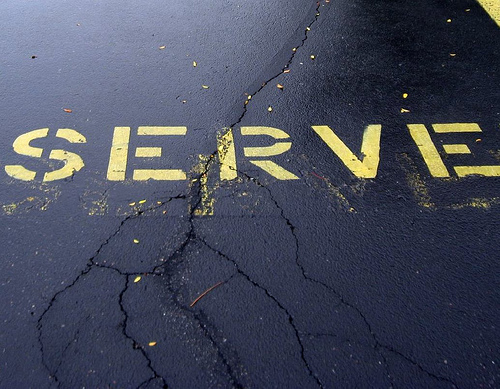We run our website the way we wished the whole internet worked: we provide high quality original content with no ads. We are funded solely by your direct support. Please consider supporting this project.
Doing the Kingdom, Not Voting It In
Our central job is not to solve the world’s problems. Our job is to draw our entire life from Christ and manifest that life to others. Nothing could be simpler—and nothing could be more challenging. Perhaps this partly explains why we have allowed ourselves to be so thoroughly co-opted by the world. It’s hard to communicate to a prostitute her unsurpassable worth by taking up a cross for her, serving her for years, gradually seeing her change on the inside, and slowing winning the trust to speak into her life (and letting her speak into our life, for we too are sinners). Indeed, this sort of Calvary-like love requires one to die to self. It is much easier, and more gratifying, to assume a morally superior stance and feel good about doing our Christian duty to vote against “the sin of prostitution.” Perhaps this explains why many Christians spend more time fighting against certain sinners in the political arena than they do sacrificing for sinners. But Jesus calls us and empowers us to follow his example by taking the more difficult, less obvious, much slower, and more painful road—the Calvary road. It is the road of self-sacrificial love.
When we return to the simplicity and difficulty of the kingdom of God, the question that defines us is no longer, What are the Christian policies and candidates? No, when love is placed above all kingdom-of-the-world concerns (Col. 3:14; 1 Peter 4:8), the kingdom-of-the-world options placed before us dwindle in significance.
What if the energy and resources Christians use to preserve and tweak the civil religion was rather spent feeding the hungry, housing the homeless, befriending the drug addict, and visiting the prisoner? What if our focus was on sacrificing our resources to help inner-city schools and safe houses for battered women? What if our concern was to bridge the ungodly racial gap in our country by developing friendships and collaborating in endeavors with people whose ethnicity is different than our own? What if instead of trying to defend our religious rights, Christians concerned themselves with siding with others whose rights are routinely trampled? What if instead of trying to legally make life more difficult for gays, we worried only about how we could affirm their unsurpassable worth in service to them?
In other words, what if we individually and collectively committed ourselves to the one thing that is needful—to replicating the loving sacrifice of Calvary to all people, at all times, in all places, regardless of their circumstances or merit? What if we just did the kingdom?
Doing the kingdom always requires that we bleed for others, and for just this reason, doing the kingdom accomplishes something kingdom-of-the-world activity can never accomplish. It may not immediately adjust people’s behavior, but this is not what it seeks to accomplish. Rather, it transforms people’s hearts and therefore transforms society.
—Adapted from Myth of a Christian Nation, pages 64-65, 115-116
Category: General
Tags: Kingdom Living, Love, Myth of a Christian Nation, Unsurpassable Worth
Related Reading

Podcast: How Should Pacifists View Military Veterans?
Greg dons camouflage in this boots to the ground episode. http://traffic.libsyn.com/askgregboyd/Episode_0295.mp3

A Word About Sharing the Gospel From an Atheist
Jen J over at A Deeper Family wrote a little piece about how she felt convicted after this video was played during a sermon at her church. She makes some good points. Penn Jillette is a famous atheist, and I’m sure he encounters a lot of Christians trying to persuade him to come to God. It’s…

The Sine Qua Non of the Kingdom
In contrast to the habit of judgment which I challenged in the previous post, God calls his people to love the way that God loves. But what exactly does this mean? People have a lot of screwy ideas about “love” today. We use the word “love” to mean a lot of different things, from sexual…

As We Remember MLK
If you’ve never read Martin Luther King Jr’s Letter from a Birmingham Jail, you should take the time to do so. He wrote the letter to leaders of of the white churches in Birmingham in response to their public criticism of the civil disobedience that resulted in his arrest. It’s discouraging how relevant his thoughts are to current…

Do We Have Intrinsic Worth? (podcast)
Spiritual economics. Greg considers the math of human worth. Episode 521 http://traffic.libsyn.com/askgregboyd/Episode_0521.mp3

William Wilberforce and the Possibility of “Christian” Politics
William Wilberforce was a passionate Christian who entered politics for the sole purpose of ending the slave trade. For more than thirty years he passionately and courageous labored to get Parliament to outlaw the practice. His life’s dream was fulfilled a month before he died in 1833. It’s no surprise, therefore, that Wilberforce is frequently…

